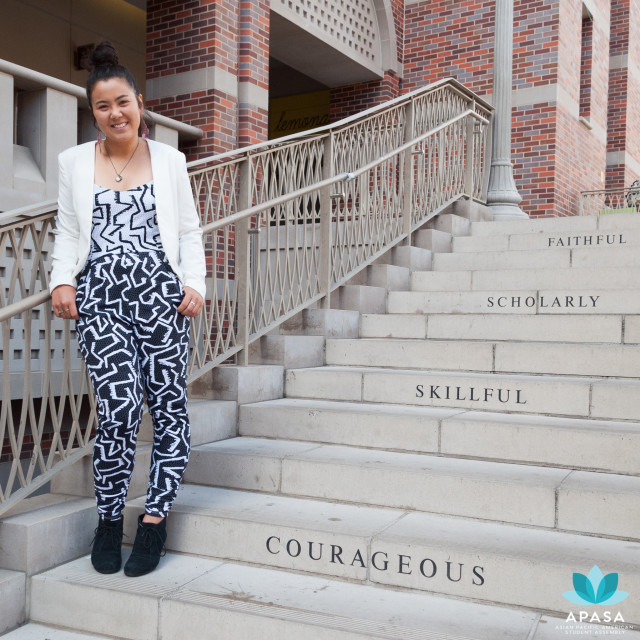APA Leaders 2016: Meet Avalon Igawa!Posted in Articles, Asian Diaspora, Campus Life, Interviews, United States on 2019-09-18 01:44Z by Steven |
APA Leaders 2016: Meet Avalon Igawa!
USC APASA (University of Southern California Asian Pacific American Student Assembly)
2016-03-10
Hi again! Hope everyone’s doing well with only one day left to get through before spring break! Anyways, as our headline says, our third APA Leader is Avalon Igawa! Avalon’s heavily involved in the APA community being the President of SCAPE and a CIRCLE coordinator. It’s hard to find someone with her passion and energetic personality! Read more about Avalon in our interview below:
Name: Avalon Igawa Major: Political Economy (Minor: Digital Studies) Year: Junior
What does being APA mean to you? I’ve been doing a lot of thinking about this question, and I realize that while it used to be really hard for me, it isn’t so much anymore. And I think that’s because I finally accepted that I don’t need a concrete answer and nobody else does either. It’s a beautiful identity because we can define it for ourselves and let it represent what we want. Wow, that sounded really cheesy, but I feel like it’s true! It took me a long time to accept that I could identify as Asian Pacific American and that I wasn’t erasing my mixed identity. I can be APA and I can be Irish American and I can be mixed. Because for me, being APA means that I can relate to the stories of other APAs and recognize the diversity of all the deep complex histories and narratives that have shaped so many of our experiences. Being APA represents hxstory and struggle, but most of all it represents community. And that’s what I love about it so much…
Read the entire interview here.





